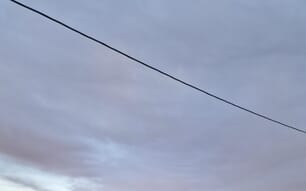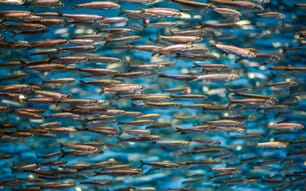“The MSC Fisheries Standard is widely recognised as the most credible and robust measure for the sustainability of wild fisheries. In order to be certified, fisheries must demonstrate that their activities are not causing fish stocks to decline,” said Minna Epps, Program Director, MSC Scandinavia & the Baltic Sea Region.
The suspension affects cod fisheries in Denmark, Germany, Sweden, Latvia and Poland: DFPO Denmark Eastern Baltic Cod; Germany Eastern Baltic Cod; Swedish Fisherman's Producer Organization (SFPO) Eastern Baltic cod; LFA Latvia Trawl Eastern Baltic Cod; and Poland Eastern Baltic Cod.
“Unfortunately, independent assessment has found that there is no longer evidence that cod stocks in the Eastern Baltic Sea meet the requirements of the MSC Standard. We hope that this will lead to all stakeholders working together to improve the management of the fishery, so that this suspension can be lifted,” Epps added.
Why are the fisheries suspended?
It was concluded that the 2015 stock assessment for eastern Baltic cod was insufficient to provide advice on stock status or reference points, which are required for robust and appropriate long term effective management of the fisheries.
These fisheries all target the same population of cod. Therefore, in accordance with the MSC’s requirements, the certification bodies responsible for certifying the fisheries must apply the same scoring for stock status. Following an annual surveillance audit site visit for the Danish, German and Swedish fisheries, the certification bodies have concluded that all certified fisheries for eastern Baltic cod should be suspended.
“The Danish Eastern Baltic cod fishery was the first fishery in the Baltic Sea to become certified in 2011. Since then, having the certificate has become a simple necessity in most of the markets where the cod is sold. The suspension of the MSC certificate for the Eastern Baltic cod fishery is therefore a very sad day for the fishermen. Especially because the reasons for the suspension is not in the hands of the fishermen, but mainly due to changes in the natural growth of the fish and a loss of the ability of the biologists to estimate how old the fish are,” said Jonathan Broch Jacobsen, Fishery consultant for sustainability, traceability and quality at DFPO.
Further details of the suspension will be included in surveillance reports which will be submitted to the MSC for publication in early 2016. The respective fisheries are working to prepare a Corrective Action Plan to address this issue.
“We can only hope, that the biologists’ current efforts to improve the situation will be successful as soon as possible, and that in the meantime the market will have the patience to wait for the return of the MSC certificate for Eastern Baltic cod”, Jacobsen added.
Supply chain implications
As a result of this suspension, cod caught by these fisheries from 17 December 2015 may no longer be identified or sold as MSC certified and cannot carry the blue MSC ecolabel.
Cod harvested up to 17 December 2015 is eligible to bear the label, providing catches comply with the requirements of the MSC Chain of Custody Standard for seafood traceability, and the date of capture can be confirmed.
Other sources of MSC certified cod
There are 12 other MSC certified cod fisheries which continue to supply MSC certified cod. This includes cod from fisheries in the Arctic, Iceland, Alaska, Bering Sea, Barents Sea and Greenland. The MSC’s website provides a list of all certified cod fisheries and suppliers.
Suspension process
These fisheries now have 90 days to address the issues raised by the certification bodies in the suspension notice. If these issues are not addressed then the fisheries’ MSC certificate will be withdrawn.




